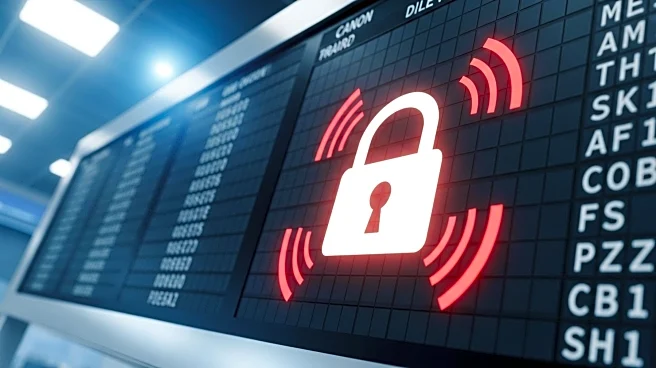What's Happening?
A significant cyberattack has disrupted air travel across Europe, leading to the cancellation of nearly 300 flights on Monday. Brussels Airport has been identified as the hardest hit, with officials working to manage the chaos and restore normal operations. The attack has caused widespread delays and cancellations, impacting thousands of passengers and highlighting vulnerabilities in aviation cybersecurity. Authorities are investigating the source of the attack and implementing measures to prevent further disruptions.
Why It's Important?
The cyberattack on European air travel underscores the critical importance of cybersecurity in the aviation industry. It highlights the potential for cyber threats to cause significant operational disruptions, affecting economic activities and passenger safety. The incident may prompt airlines and airports to reassess their cybersecurity protocols and invest in more robust defenses. It also raises concerns about the ability of infrastructure to withstand cyber threats, potentially influencing regulatory policies and industry standards.
What's Next?
Authorities are expected to intensify investigations to identify the perpetrators of the cyberattack and assess the extent of the damage. Airlines and airports may collaborate with cybersecurity experts to enhance their defenses and prevent future incidents. The situation could lead to increased regulatory scrutiny and the development of new cybersecurity guidelines for the aviation sector. Stakeholders, including government agencies and industry leaders, may engage in discussions on improving resilience against cyber threats.









